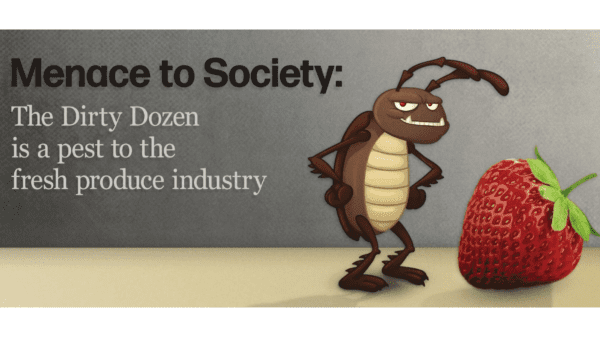What effect have lists like the Dirty Dozen had on produce consumption?
Lauren Scott, chief strategy officer for the International Fresh Produce Association (IFPA), observes, “I don’t know the overall impact this study has had in the 18 years since it was first published, but misleading and confusing information that negatively influences consumer behavior towards our industry’s products will be challenged and countered by the IFPA.”
“Low consumption is caused by a complex matrix of factors ranging from price to access, choice, learned behaviors, etc.,” Scott continues. “There is no simple one-size-fits-all solution.”
Carrie Dennett, nutrition columnist for the Seattle Times, points to one reason for this situation: “Many people are spending less time on food preparation, and this may particularly affect vegetable consumption, because vegetables generally need more preparation, whether we’re steaming, roasting, or stir-frying, or combining them into a tossed salad. I have many, many clients who tell me they love salads and vegetables—when other people prepare them! They feel like it’s too much work to do themselves, at least regularly.”
Christine Rosenbloom, nutrition professor emerita at Georgia State University, says: “I think we need to do a better job of helping consumers understand how to use, store, and enjoy fruits and veggies. I would love to see people eat more produce every day.”
“Many people talk about a plant-based diet, yet we aren’t meeting the recommendation for fruits and vegetables—the original plant-based foods. Some people are eating highly processed plant-based foods instead of more real plant-based foods,” she says.
In the end, one can wonder whether messages like those of the EWG and Consumer Reports have any appreciable effect on U.S. produce consumption overall.
Much more significant is the fact that the backbone of the American diet is highly processed foods—fast food, frozen prepared meals, salty snacks, junk food of all kinds.
Debunking the Dirty Dozen list is less important (although much easier) than facing this core issue.
Focusing on the Benefits
One issue upon which all sides appear to agree is that eating fresh fruit and vegetables is healthy.
Alex Formuzis, senior vice president of communications and strategic campaigns for the Environmental Working Group, argues that the EWG advocates “eating plenty of healthy fruits and vegetables—including many conventionally grown crops.”
“There is growing evidence that fresh produce consumption can help address a multitude of global health challenges related to nutrition,” comments Scott.
“Tufts University research has found that subsidized fruits and vegetables could prevent millions of cases of chronic diseases and save $100 billion in medical costs. Clearly, the global produce industry has an integral and vital role to play in building a healthier world.”
This an excerpt from the cover story in the May/June 2022 issue of Produce Blueprints Magazine. Click here to read the whole issue.



